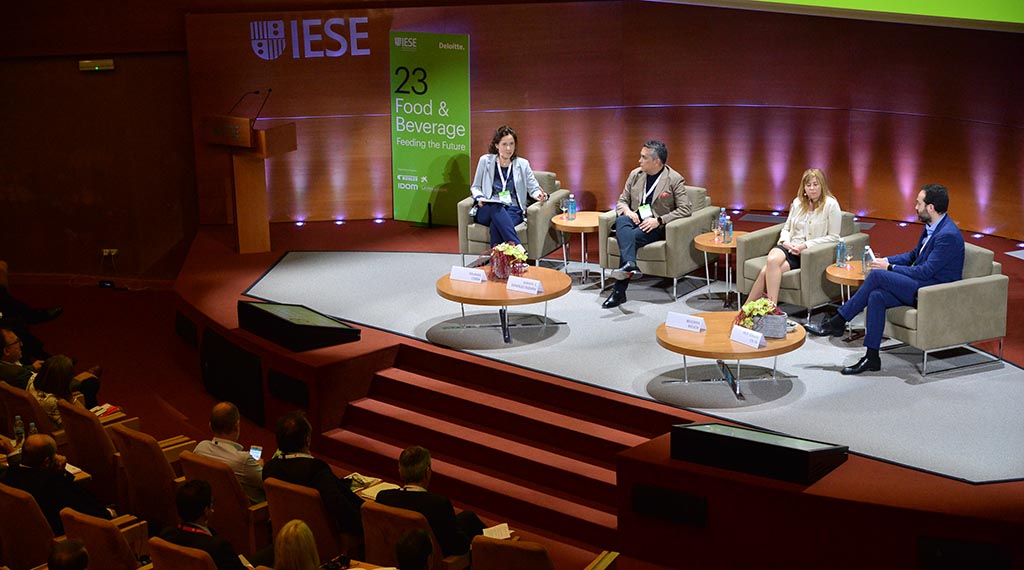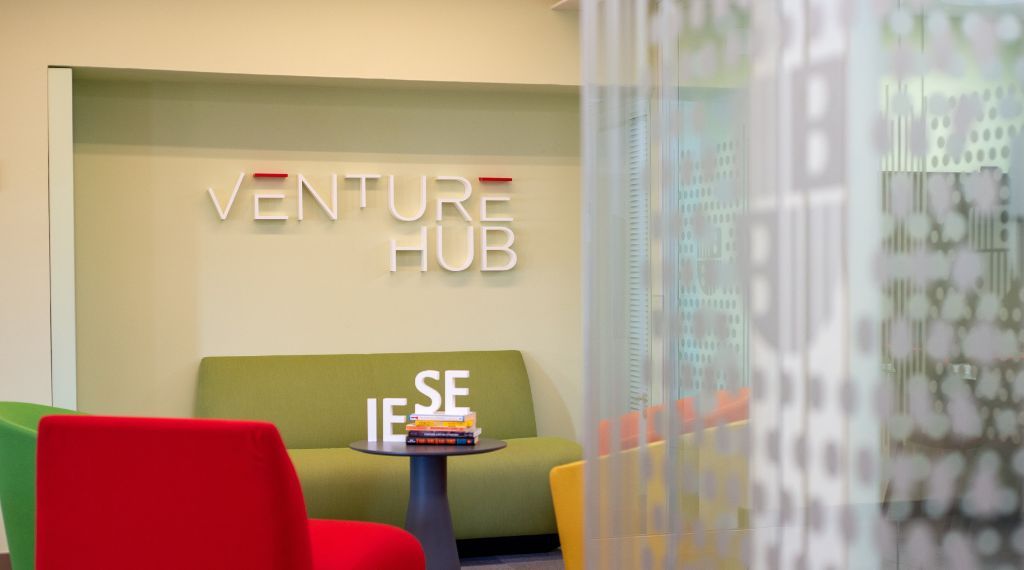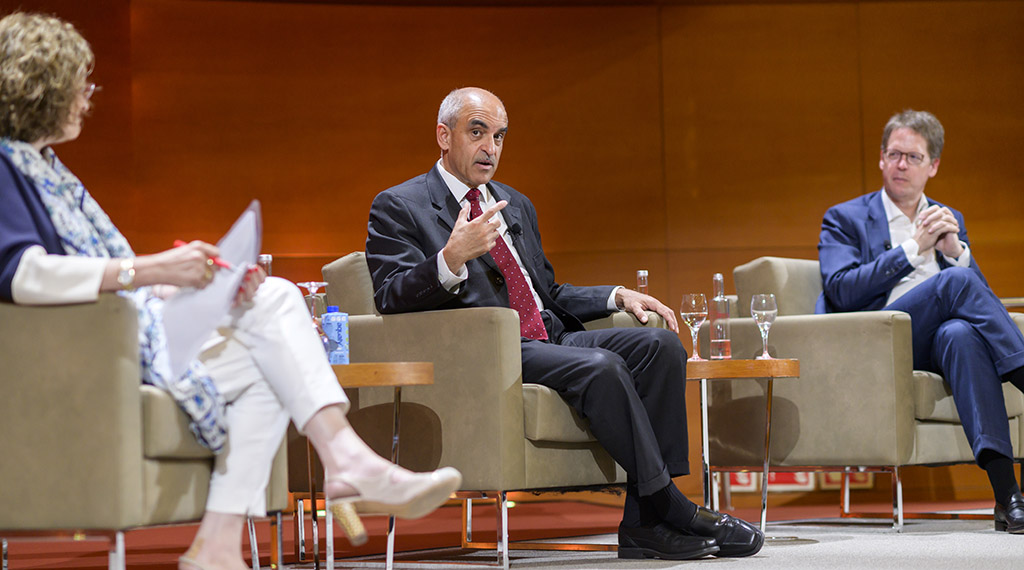Stories
“Surprising people in the food industry is very difficult”
Food & Beverage Industry Meeting looks at how innovation meshes with price, growth and sophisticated consumers
On a panel on innovation, (from l to r) Yolanda Cerdà, Manuel González Guzmán,
Begonya Mèlich and IESE’s Eduard Calvo.
Photo: Jordi Tarrés
June 11, 2019

QR codes, probiotics and political uncertainty. This is the varied nature of Europe’s food and beverage sector today, and innovators have the tall task of navigating it.
In addition, “surprising people in the food industry is very difficult as it is such a mature market,” said Yolanda Cerdà, FMCG innovation observatory manager at Institut Cerdà and one of the many industry experts who convened at the Barcelona campus recently for the 23rd annual Food & Beverage Industry Meeting.
The themes of innovation and industry trends were recurring leitmotifs throughout the day-long discussions, which were grouped under the umbrella theme of “Feeding the Future.” The conference was organized by IESE in collaboration with Deloitte.
Mella Frewen, director general of FoodDrinkEurope, said consumer demand today can be summed up by “we want everything now and cheap.” And while we can talk about many trends from halal to lactose-free, what really drives consumer choice is price.
It’s a challenge for the industry to meet this consumer price demand and at the same time maintain strong ethics, Cerdà pointed out. “It’s hard to have both an ethical supply chain and low costs. It requires a lot of collaboration.”
Plants and probiotics surging
Plant-based food is a major trend, said Manuel González Gúzman, founder and managing partner of Global RIFF (Revolution in Food Fund), and it is “growing three times more than the meat industry and will hit $35 billion very soon.”
He also said that probiotics were enjoying 10% annual growth and would soon reach $12-25 billion, adding, “You want to invest in businesses that follow this demand curve.”
QR codes were widely discussed both in the context of buying food online, and the traceability trend. Consumers want to know where their food comes from, particularly in the case of endangered species, said Begonya Mèlich, head of quality control, R&D and environmental issues at Balfego Group, which fine-tunes the traceability of red tuna caught in Catalunya’s Ametlla de Mar.
Investing in innovation
On the topic of investing in innovation in the sector, Gúzman stressed how people were the drivers of innovation. While it was necessary to assess a range of parameters, from market strategy to prototype, you were always investing in people over anything else. He emphasized how this was especially so in startups, where the figures may change drastically in the space of a year.
Innovation in this sector might be a challenge but it is an essential driver for growth. Europe is on track in terms of growth, and that is largely thanks to trade and innovation, said Frewen, quoting a €30 billion trade surplus.
Innovation also does a lot of general good, be it through the creation of personalized food for older people, tackling diseases such as obesity and heart disease, or reducing plastic packaging while maintaining food safety.
Trends external to demand
Beyond innovation within the sector, the industry is uniquely susceptible to global factors such as climate change and trade disputes.
Frewen lamented how the food industry would be one of first victims of climate change. “Drought, heavy rainfall and rising temperatures all affect the provision of raw materials,” she explained.
Protectionism is affecting the sector, and pasta is a case in point. In Italy, the country of origin of raw materials now has to be displayed to protect hard wheat, owing to competition from Canadian imports.
Brexit of course came up; now considered a trend, given its lengthy unravelling. The industry experts agreed that Brexit, in all its unpredictability, has the potential to be highly disruptive to both food imports and exports in the U.K.
Meanwhile, political tensions between China and U.S. can have implications closer to home than we might think, said Frewen, warning that “Europe could end up being on the hard end of a trade dispute.”


